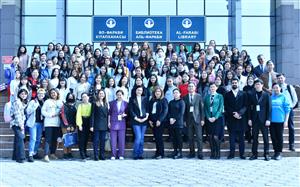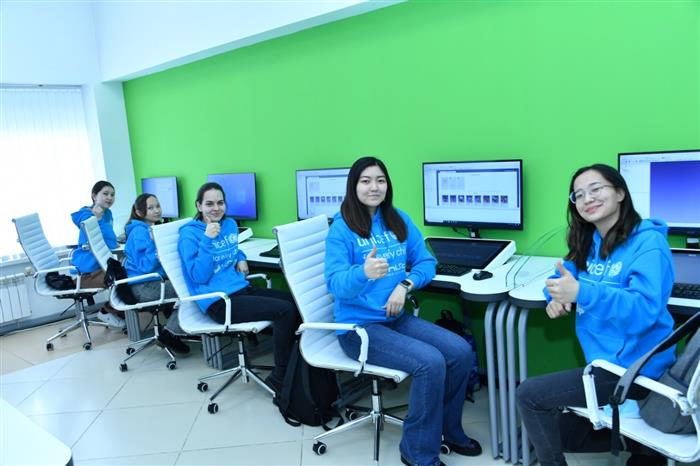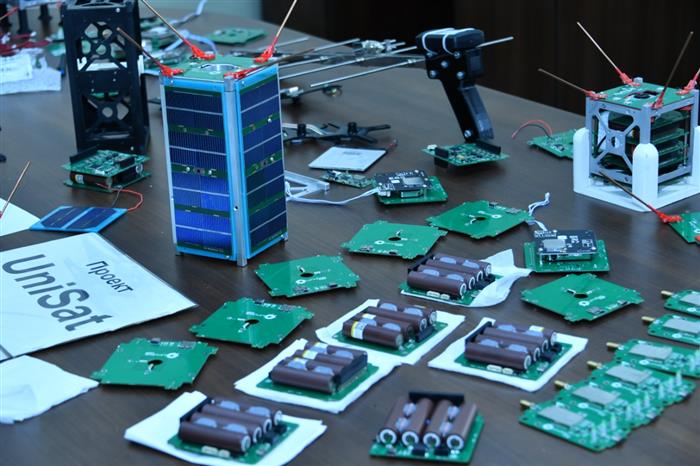- Main page
- News
It opens the way for girls to explore space
4/11/2022
UniSat is a joint project of UNICEF and Al-Farabi Kazakh National University. It aims to develop STEM-education (Science, Technology, Engineering, Mathematics) among girls through the development of educational courses on nanosatellites.

Today, UNICEF focuses on gender policy among young people around the world. UniSat is implemented in this area within the framework of a unique partnership between UNICEF and Al-Farabi Kazakh National University. Therefore, more than 150 participating girls from Kazakhstan, Kyrgyzstan and Uzbekistan will be trained by leading experts in the field of space technology from March 21 to 30. These include 3D modeling, software control unit design, software and hardware development skills, and the basics of communications and programming in Linux. At the final stage of the project, participants were exposed to a nanosatellite stratosphere.
Nanosatellites are a class of small spacecraft weighing less than 10 kg. Today, nanosatellites are developed in many of the world's leading universities and commercial organizations.
The UniSat project aims not only to develop skills and competencies in the development of nanosatellites, but also in teamwork, public speaking, time management, creativity and more. b. aimed at developing flexibility skills in girls.

A joint project of KazNU and UNICEF is another important step in the development of STEM education for girls in Kazakhstan. The event, which was organized for the first time in the 2020-2021 academic year, continued this year. Therefore, we hope that in the future it will become a traditional project.
The course is aimed at developing students' abilities and skills in designing, modeling, assembling, testing and launching real spacecraft, as well as data analysis.
Kamila Erkinkyzy

